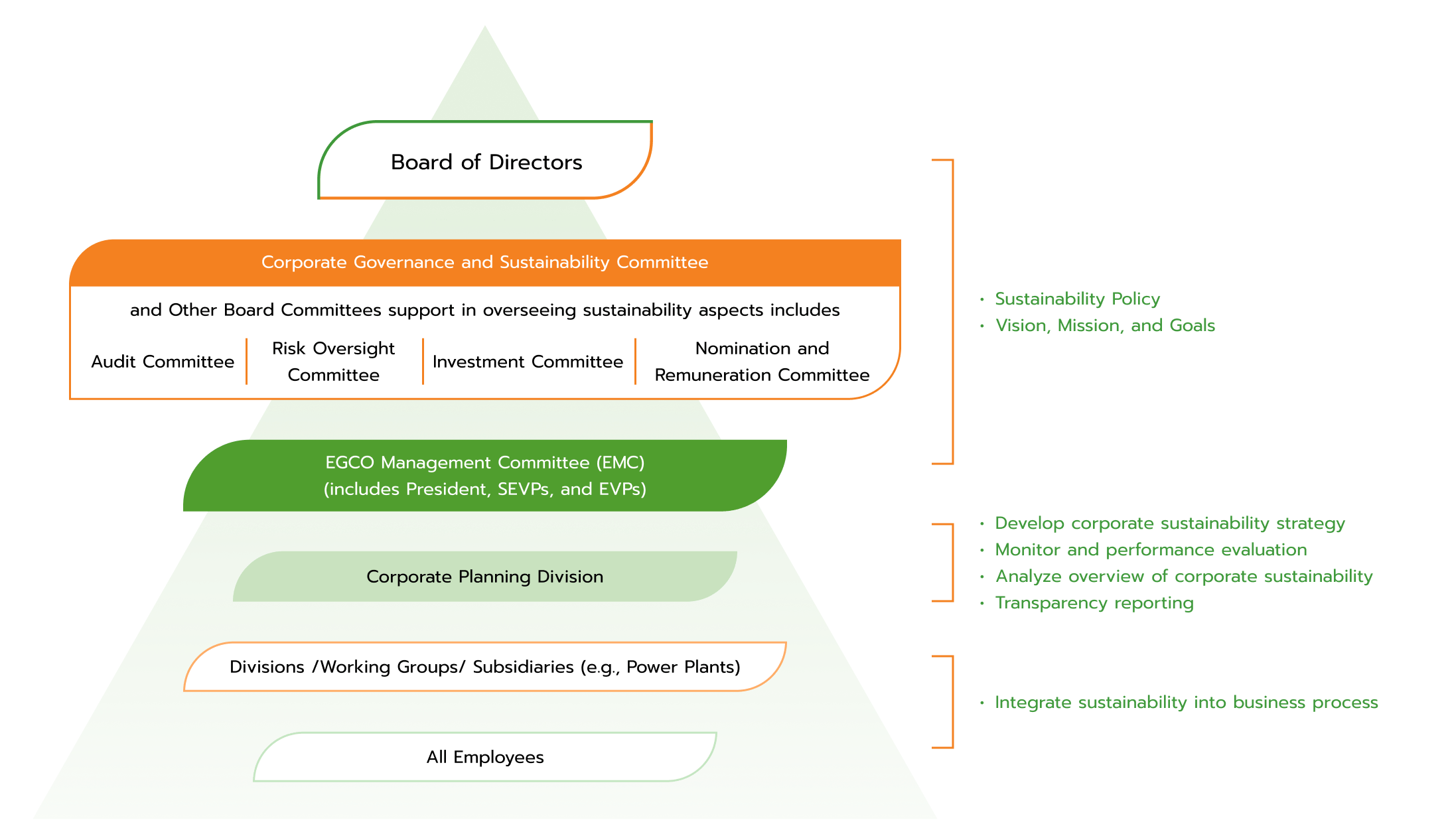Sustainability Management
In managing sustainability, EGCO Group has established policies, management structures, framework and guidelines as follow:
Sustainability Business Policy
[GRI 2-23 (2021)]
Commit to operational excellence, covering economic, environmental, community, and social dimensions

Reduce negative impacts and enhance positive impacts on stakeholders, the environment, the community, and society throughout the organization’s business operations.

Promote the development of business and social innovations to enhance efficiency and effectiveness with value added to the organization and stakeholders

Promote sustainable development of business counterparts involving ethical business operation with transparency, without fraud or corruption, with respect to human rights, care for safety and occupational health, and environmental management

EGCO Sustainability Framework
[GRI 102-19]
EGCO Group established sustainability operation framework’s 9 elements under 4 operational frameworks according to the ISO 26000, namely Accountability, Strategic Alignment, Stakeholder Engagement, and Transparency Reporting. The Company also established principles and requirements on various topics with regards to the national and international sustainability standards and requirements to develop the Sustainability Manual. In the pursuit of business sustainability, EGCO Group relies on the internal inter-department cooperation to integrate sustainability material topics into every operation in the company.
DownloadSustainability Management Structure
[GRI 2-12 (2021), 2-13 (2021) 2-24 (2021)]
EGCO Group has established a comprehensive Sustainability Management Structure to ensure its operations align with responsible business practices and sustainable development principles.
At the board level, there is clear oversight of ESG and sustainability issues, assigned to the Corporate Governance and Sustainability Committee, a dedicated board-level ESG/sustainability committee. All members of this committee are members of the Board of Directors, ensuring independent and strategic oversight of sustainability-related risks, opportunities, and performance. The responsibilities of this committee are defined in the Charter of the Corporate Governance and Sustainability Committee.
At the management level, the EGCO Management Committee (EMC) which includes the President, SEVPs and EVPs level functions as dedicated executive-level ESG/sustainability committee, responsible for coordinating the implementation of ESG strategies and reporting progress to the board on a quarterly basis. Furthermore, the President represent as Chief Sustainability Officer, a designated executive responsible for ESG oversight. This role serves as the primary liaison between the Board and management on sustainability matters and ensures that ESG considerations are effectively integrated into the Company’s corporate strategy and decision-making processes.
To support implementation, the Company assigned Corporate Planning division to oversee all sustainability aspects covers the corporate sustainability strategy of EGCO Group, monitor and evaluate the performance as well as analyze the sustainability issues in overview before reporting information to the public.
Together with all divisions, ESG working groups and all subsidiaries have their relevant issues to consider and strive the challenges to integrate the sustainability into the business process.
These mechanism demonstrate EGCO Group’s strong commitment to embedding sustainability at all levels of the organization.
